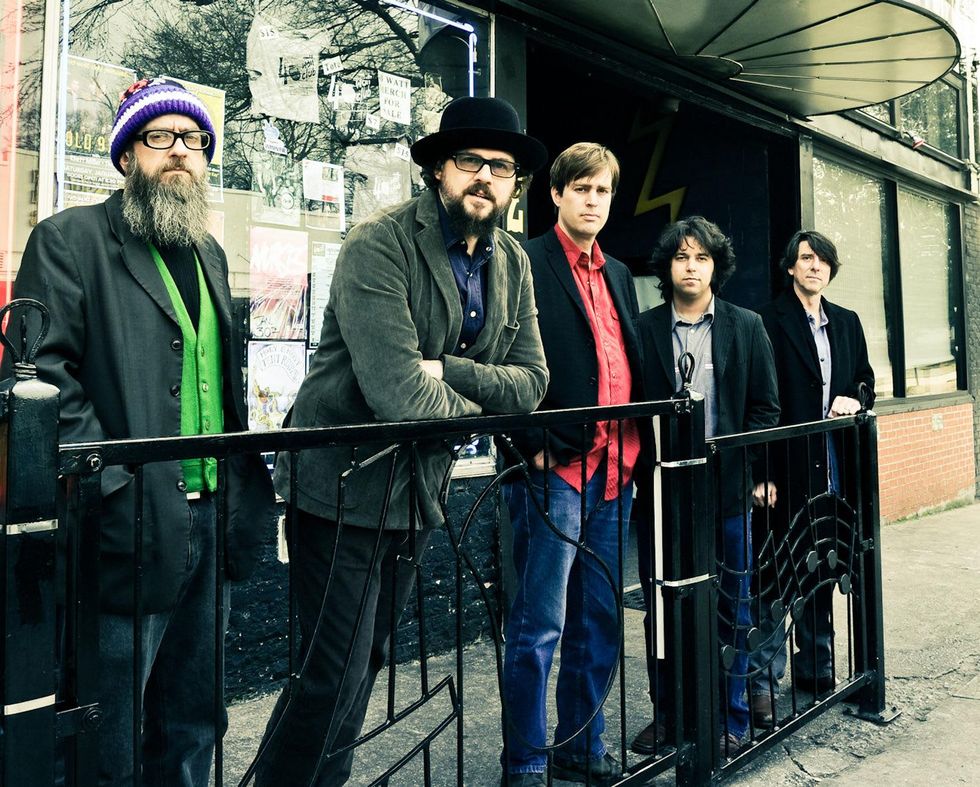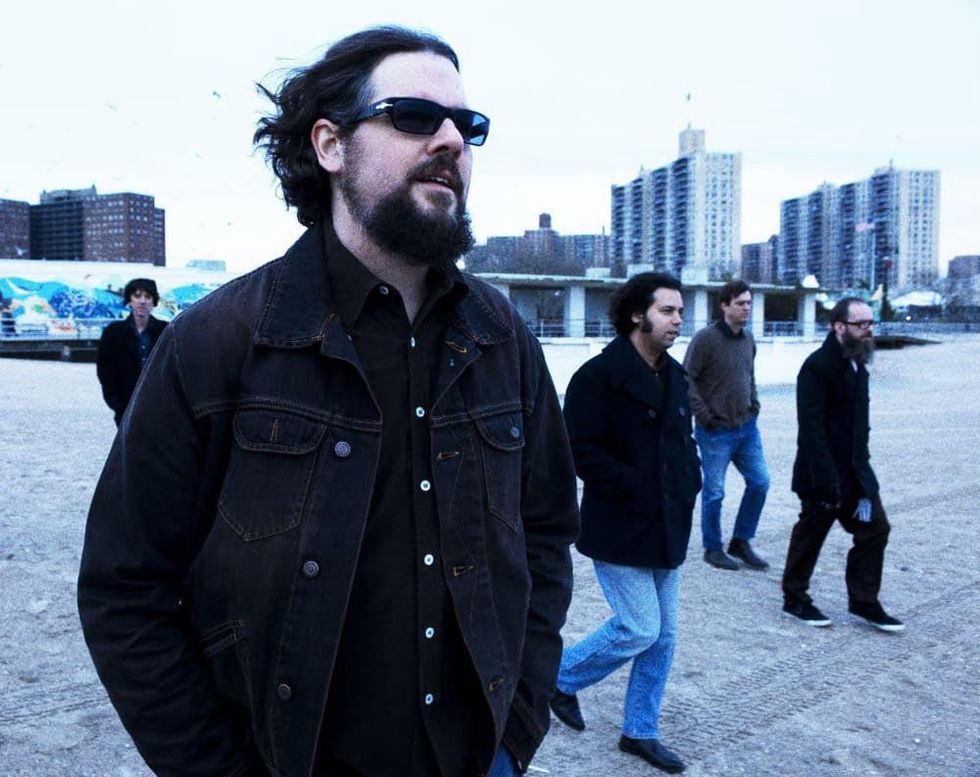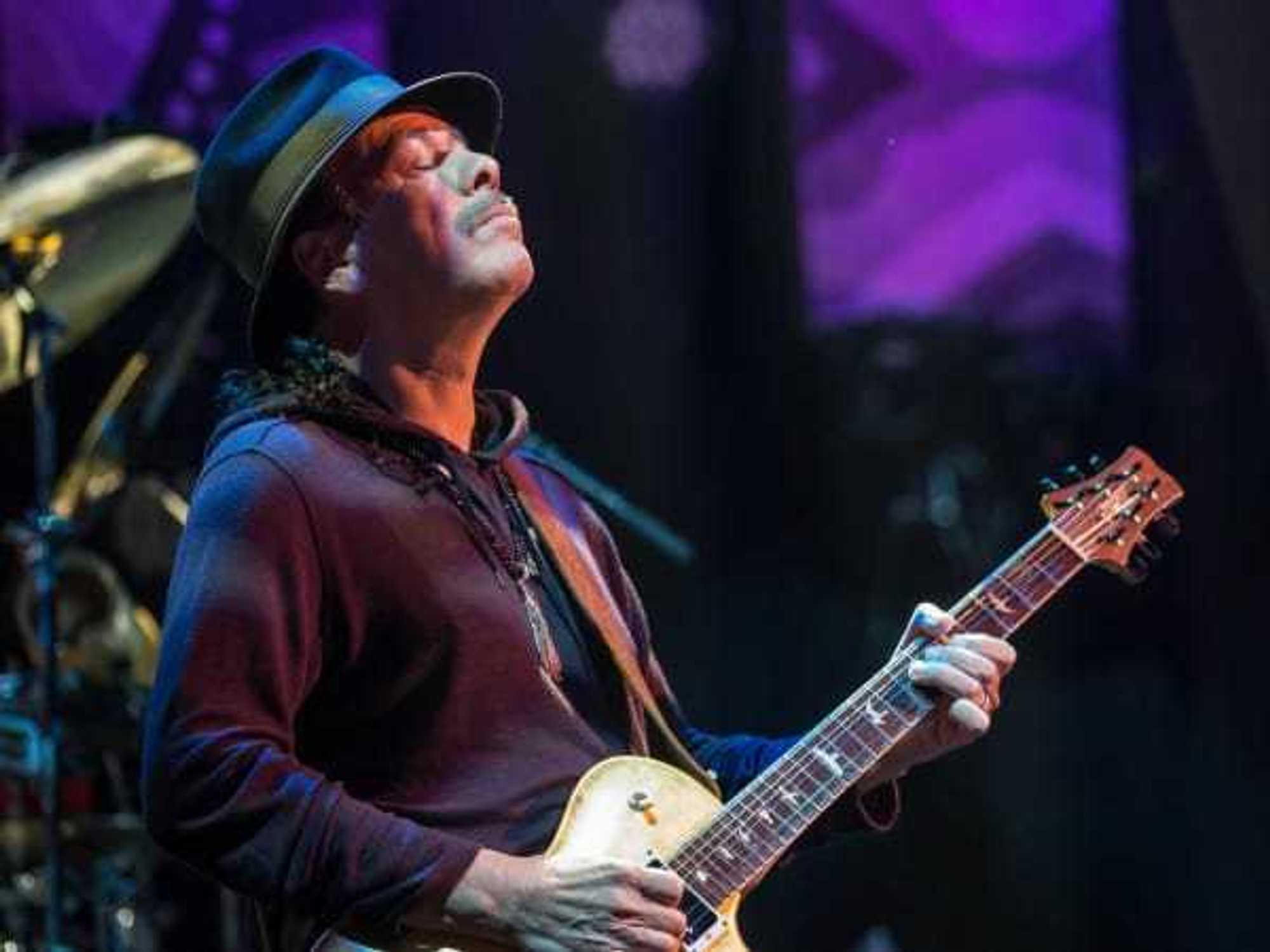The CultureMap Interview
The Drive-By Truckers' Mike Cooley on recording live music and Southern accents
The Drive-By Truckers have been exploring what it means to be Southern through their storytelling songs since 1996. The two founding members, Patterson Hood and Mike Cooley, are from northern Alabama, but the band started in Athens, Georgia — the college town that also spawned the B-52’s, REM, Widespread Panic and many others. The Truckers rose to prominence in 2001 with the release of Southern Rock Opera, an album that examined the band's Southern roots.
Sometimes described as alt-country, DBT’s sound spans from arena rock to soul, but is always rooted in regional influences. Often full of dark lyrics and sinister characters, they also seek to illustrate the other side of the Southern story: overcoming national biases, explaining the views of Southerners and shedding a light on the complex nature of “the Southern thing.”
To wade through what’s behind this deep material and understand their approach to touring after all these years, we spoke with co-founder, singer, songwriter and guitarist Mike Cooley before their January 26 show at Billy Bob's.
“What I’ve learned since we’ve been on the road is that rural culture in America is not that different from one end of the country to the other,” Cooley says. “The only thing that changes is the accent.”
Culture Map: Are you excited to play Billy Bob’s? Your music is a bit different from the standard acts you see there.
Mike Cooley: I heard that they make everyone stay seated! It should be fun, though. It sounds cool.
CM: You recorded as the backing band for Booker T. in 2009, along with Neil Young and Andre 3000. That’s a pretty eclectic lineup. What’s the coolest band or musician you’ve gotten to sit with?
MC: Booker is way up there. Spooner Oldham played a bunch of shows with us and a couple albums with us. They are about tied. He’s from Muscle Shoals, so Patterson Hood has known him since he was a kid, since his dad knows him.
CM: Can you talk about your new solo album, The Fool on Every Corner?
MC: It’s fun. It’s a live album. It’s a lot of Drive-By Truckers songs that I just reworked to do solo shows. I’m pretty proud of it. There are a few songs that we didn’t get good versions of, some fan favorites, but overall we got some good songs.
CM: How do you decide which shows to record and then which to release as an album?
MC: Funny thing is, it happened with this album of mine, if you record more than one night, the night you thought was the worst will be the best. If you pick a great venue and play a good show but played a dump the night before, you’ll have a better record from the dump. If you’re gonna take it live, you’re gonna get what you get. There’s not much control over it other than listening to and deciding this can never be heard by anyone ever again.
CM: During the New Year’s show in D.C., Patterson Hood said something to the effect of, “Southerners make good records, write good books, take good photographs and make beautiful paintings, so maybe the South will rise again, just in a better way.” Do you agree with that statement? Can you talk about it a bit?
MC: I absolutely agree with that. He and I were doing the same thing at the same time: trying to learn about that era of our culture and trying to look at it from an adult perspective. We were kids when George Wallace was governor of Alabama and the Civil Rights movement was going on. There’s so much good in the culture here to have so much bad. Maybe that’s the same everywhere. We’re just talking about the South because that’s where we’re from.
CM: The South is an interesting place to be right now. Businesses and people, both from inside and outside the U.S., are moving there, and Southern culture (food, art, drink, etc.) is getting a lot of attention from critics and television. Is this a turning point for the South?
MC: In the cities for sure, but outside the cities it’s the same as it’s always been. The city culture of the South was still the South back then, just with more concrete.
I think the Internet has influenced that, because you can get information from anywhere. It’s not as backward, not a bubble stuck in another time, like it was when we were kids. We only had TV, and God knows that’s not a good thing. You’re probably learning less from TV now, even though we only had three channels. Maybe it’s also the generation of parents, maybe we’re more forward thinking. Maybe they had the same type of introspection we did.
What I’ve learned since we’ve been on the road is that rural culture in America is not that different from one end of the country to the other. There are places in Northern California that make where I’m from look downright cosmopolitan. The only thing that changes is the accent.
CM: Is Texas part of the South?
MC: No. Hell no. (Laughs) It’s a Southern state. It was a Confederate state. But if you think of the South, as we do, as the Southeast or the Deep South then it’s not. I don’t know why they call it the Deep South. Texas is deeper; I’ve seen a map. I’m kidding about it not being the South. We don’t even consider Florida to be part of the South. Maybe Northern Florida, but Florida is like three or four different states, and only the Panhandle is Southern.
CM: Most bands are either “road bands” who live to play, or bands who can’t wait to get back in the studio, but y’all seem to straddle both. Does one feed the other?
MC: I enjoy making records. All of us do. I love being able to tour and love playing live. If I had to do only one, I’d get sick of it. I can see why some people don’t like making records. If nothing else, it’s just fun to hang out in the studio. A lot of the time it’s just us bullshittting. If you do that long enough, you can come up with something that works. That’s a lot of our stuff comes from. It’s cool to not have an audience around and just be able to hang out with the band.
CM: What’s one song you’d wish you’d written?
MC: If you hadn’t asked me, I’d be able to name 10. Something by James McMurtry.


